What happens during a shoulder dislocation?
Your shoulder joint is called a ball-and-socket joint because of the design of the shoulder. The ball-shaped top of your upper arm, or humerus, fits snugly into the socket of your shoulder blade.
When the humerus “ball” becomes dislodged from the shoulder blade “socket,” a dislocated shoulder is the result.
How are shoulder dislocations commonly caused?
Shoulder dislocations are the most common dislocation injury patients experience. They occur from relatively common events, such as falls or heavy blows to the area experienced during sports or accidents.
Shoulder dislocations may also occur as a result of extreme muscle contractions, such as those experienced during a seizure or electric shock.
How is a dislocated shoulder treated?
Dislocated shoulders need to be physically manipulated back into position for recovery. In most cases, Dr. Gombera provides you with pain medication prior to the procedure to help relax your muscles. He then carefully pulls your arm in the direction of the shoulder socket so that your humerus can slip back into place.
How long does recovery take for a dislocated shoulder?
After Dr. Gombera returns your humerus to its original position, you’ll need to wear an arm sling for anywhere from one to four weeks. He’ll also assign you a physical therapist to help you regain full range of motion and arm strength as you recover.
Provided you stick to your physical therapy treatment, you should regain full range of motion over your arm within six to eight weeks. Much of your arm strength should return within a few months, but in some cases, it can take a full year for complete recovery.
Can I return to sports following recovery?
In most cases, you can return to sports following recovery from a dislocated shoulder, but you’ll need to recognize that once you’ve dislocated a shoulder, your chance of re-injuring that shoulder can be as high as 90 percent.
If you want to avoid another dislocation, or prevent one in the first place, Dr. Gombera recommends performing strength and muscle training centered around your shoulder. The increased strength and mass in the area makes it difficult for the joint muscle to tear away from its intended location.
To get the effective treatment you need for a dislocated shoulder or help prevent it from occurring, call Fix My Shoulder in Houston or schedule a consultation online today.




